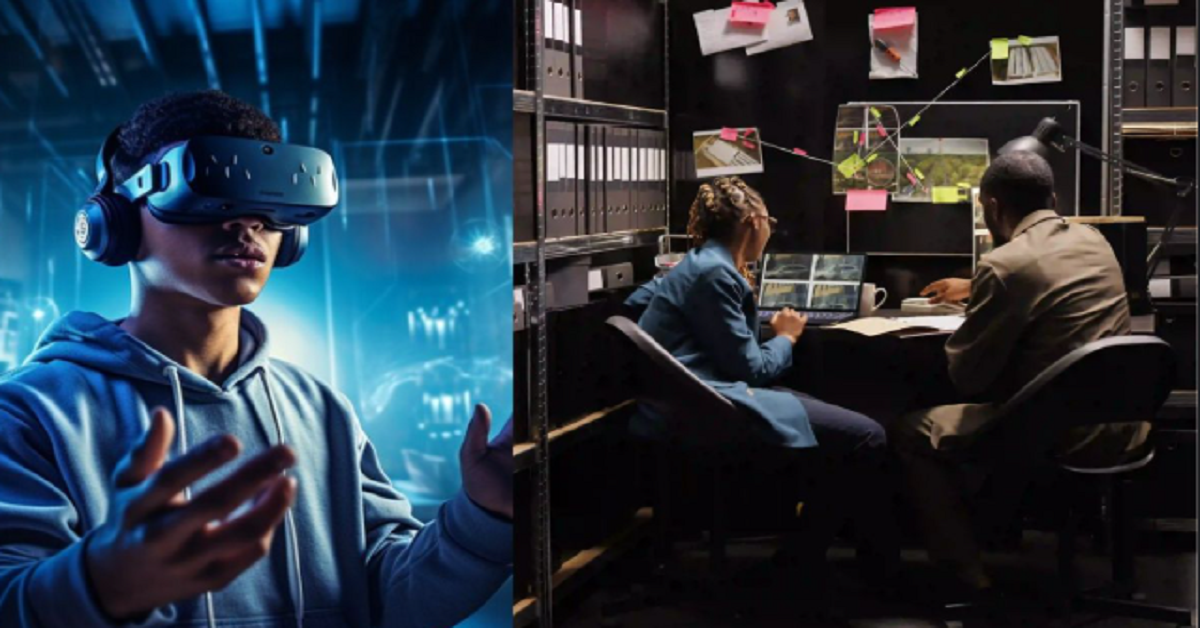In the rapidly evolving beyond bytes and bits: law craft in the information age the interplay between technology and law has reached unprecedented levels of complexity. The legal field, long seen as steeped in tradition, now faces new challenges and opportunities as it adapts to the digital era. Beyond bytes and bits, the crafting of laws has become a delicate art, requiring a balance between technological advancement and societal needs.
The Dawn of the Information Age
The beyond bytes and bits: law craft in the information age has transformed how we communicate, work, and live. Digital technologies, from the internet to artificial intelligence (AI), have disrupted industries and reshaped human interaction. With this technological boom, the need for legal frameworks to address new ethical, social, and economic issues has intensified. Lawyers and policymakers are no longer just interpreters of existing laws; they are now architects designing a legal structure for a digital society.
Legal Challenges in the Digital World
The digital revolution presents unique challenges that demand innovative legal solutions. Key areas include:
1. Data Privacy and Security
The exponential growth of data collection has made privacy a central legal concern. Laws like the General Data Protection Regulation (GDPR) in Europe and the California Consumer Privacy Act (CCPA) in the U.S. have set benchmarks, but questions about jurisdiction, enforcement, and evolving technologies like facial recognition continue to arise.
2. Intellectual Property Rights
In a world of digital content beyond bytes and bits: law craft in the information age creation, intellectual property laws struggle to keep pace. Creators, platforms, and users often clash over copyright issues, especially with the rise of AI-generated content. Legal experts are now exploring whether AI systems themselves can own intellectual property.
3. Cybercrime and Digital Security
Cyberattacks, hacking, and identity theft are on the rise, requiring robust legal measures to combat them. International cooperation becomes crucial as cybercriminals often operate across borders, exploiting gaps in jurisdictional laws.
4. AI Ethics and Accountability
Artificial intelligence is raising ethical beyond bytes and bits: law craft in the information age questions about decision-making, bias, and accountability. When an AI algorithm discriminates or malfunctions, who should be held responsible? Governments and legal systems must craft laws to govern the development and deployment of AI responsibly.
Law Craft in the Digital Era
Law craft in the Information Age demands adaptability, foresight, and collaboration. Crafting effective laws involves understanding both the technological underpinnings and the societal implications of innovation.
1. Agile Legal Frameworks
Traditional laws often struggle to keep up with the speed of technological advancements. Agile legal frameworks, designed to evolve as technology changes, are gaining traction. For instance, sandbox regulations in the fintech industry allow companies to test new financial technologies under regulatory supervision.
2. Multistakeholder Collaboration
Legal frameworks increasingly require input beyond bytes and bits: law craft in the information age from technologists, ethicists, and social scientists. Multistakeholder collaboration ensures that laws reflect a comprehensive understanding of emerging issues. For example, the development of AI ethics guidelines often involves input from academia, industry leaders, and civil society.
3. Global Harmonization of Laws
As technology transcends national borders, global harmonization of laws becomes essential. Organizations like the United Nations and the World Economic Forum play crucial roles in fostering international agreements on issues like cybercrime, data privacy, and AI governance.
The Role of Legal Professionals in Shaping the Future
Legal professionals are at the forefront of navigating this new landscape. They are not just advocates or enforcers of laws but also key players in shaping the future.
1. Embracing Technology
Lawyers are increasingly using tools like AI-powered legal research platforms and blockchain for secure contract management. These technologies enhance efficiency and accuracy, enabling legal professionals to focus on strategic tasks.
2. Ethical Leadership
As guardians of justice, legal professionals must beyond bytes and bits: law craft in the information age advocate for ethical standards in technology development. Their voices are crucial in debates about surveillance, algorithmic bias, and digital rights.
3. Educating Stakeholders
Legal experts also play a vital role in educating businesses, governments, and individuals about the legal implications of technology. Awareness and proactive measures can prevent costly litigation and foster trust in digital systems.
Future Directions in Law and Technology
The future of law craft in the Information Age hinges on innovation and adaptability. Potential developments include:
- AI-Assisted Legal Drafting: AI tools will become increasingly sophisticated, helping lawmakers draft precise and effective legislation.
- Decentralized Legal Systems: Blockchain technology could revolutionize dispute resolution and contract enforcement by creating decentralized legal systems.
- Focus on Digital Human Rights: As digital platforms become integral to public life, the concept of digital human rights will gain prominence.
Conclusion
In the beyond bytes and bits: law craft in the information age law craft extends beyond bytes and bits. It requires a nuanced understanding of technology’s impact on society and a commitment to creating fair, ethical, and forward-looking legal systems. As we navigate this digital frontier, collaboration between technologists, legal experts, and policymakers will be vital in shaping a future that balances innovation with justice.
The art of law crafting will continue to evolve, reflecting the dynamic interplay between humanity’s ingenuity and its need for order and fairness. The challenge lies not just in keeping up with technology but in ensuring that the laws we create serve the greater good. See More
